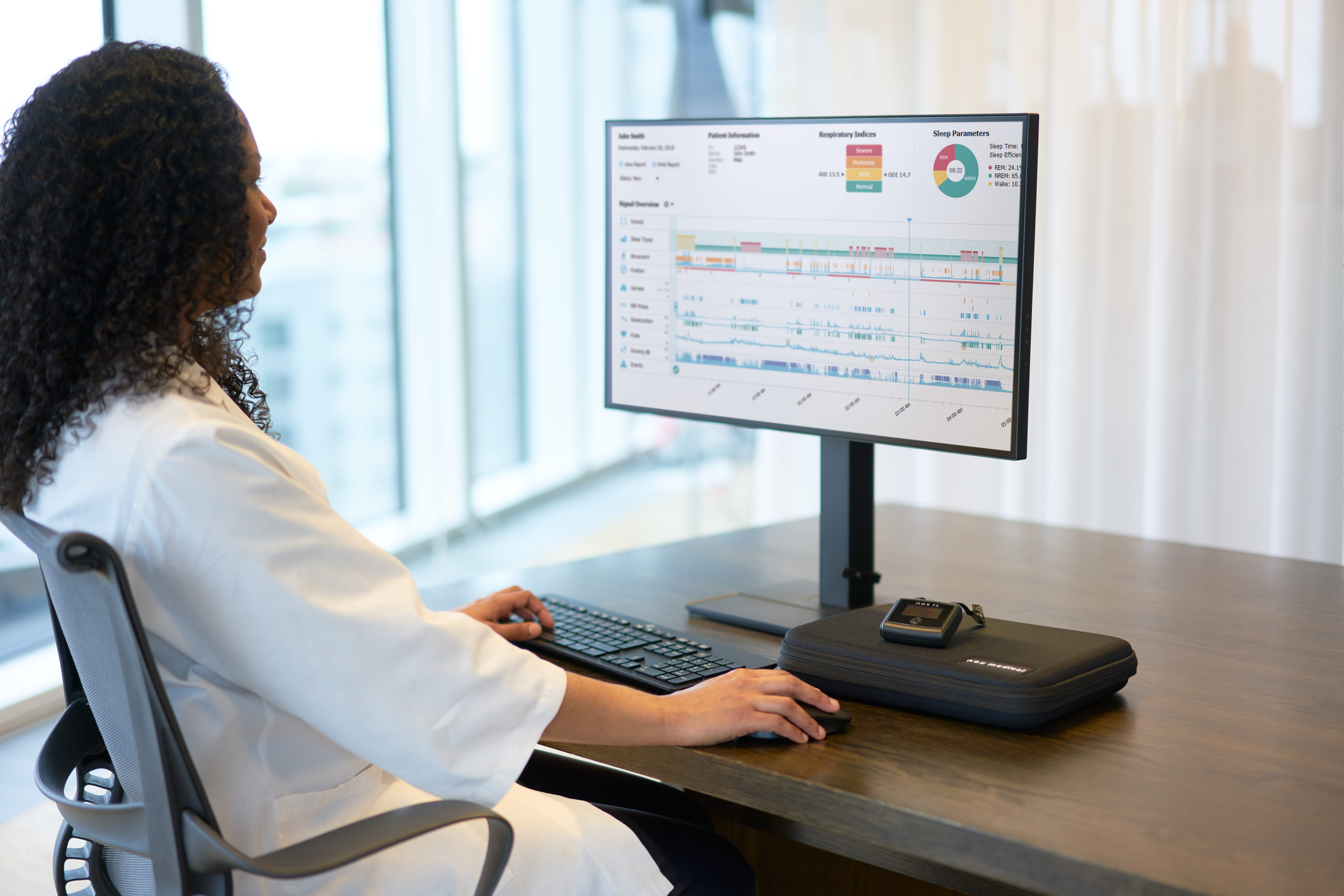A new artificial intelligence-powered deep learning algorithm from data scientists at Nox Medical will be presented at the Nordic Sleep Conference in Iceland this month to challenge the status quo of how sleep medicine professionals detect and evaluate arousals during diagnostic sleep testing.
During a sleep test, an arousal refers to a momentary interruption in the sleep cycle. Arousals can have many causes, including a breathing obstruction during sleep, or a noise in the environment, but regardless of the cause these events enable sleep clinicians to obtain a more comprehensive picture of their patients’ sleep health.1
Now, an artificial intelligence-powered deep learning algorithm from researchers at Nox Medical challenges how sleep medicine professionals detect and evaluate arousals during diagnostic sleep testing.
“The idea is that we could help sleep scorers score recordings a lot quicker and more accurately,” says co-author of the abstract Eydís Arnardóttir, MS, who is a product owner at Nox Medical.
The researchers developed an artificial intelligence-driven (AI) model for arousal scoring in polysomnography (PSG) sleep testing. The model is a new version of an arousal scoring that is anticipated for release in a future update of the sleep software Noxturnal, which could streamline sleep diagnostics by reducing the time and effort needed for technologists and other sleep professionals to score sleep studies.
“Our approach enables the model to learn more complex features as the size of its training data increases without requiring manual feature extraction,” writes VP of Artificial Intelligence and Data Science Jón Skírnir Ágústsson and colleagues in a new abstract that will be presented at the Nordic Sleep Conference in Iceland this month.
This new approach, the authors explain, results in fast prediction times of only a few seconds for each PSG sleep study conducted with the Nox A1s PSG system while maintaining high scoring accuracy.
The AI-powered end-to-end deep learning model from Nox Medical researchers can predict arousals based on raw brain wave activity measured with electroencephalogram (EEG), eye movement captured via electrooculography (EOG), and muscle activity looking at electromyography (EMG) signals.
The researchers trained the model on over 1,800 manually scored PSG studies and validated the model on previously unseen data. The results showed epoch-level agreement with a sensitivity of 67%, specificity of 91%, and accuracy of 86%. Moreover, the model accurately placed the arousal events with respect to the preceding respiratory events, suggesting that the model’s output can be used for hypopnea scoring.
In support of this, the study found that using the model-predicted arousals as inputs for automatic hypopnea detection, the downstream apnea-hypopnea index (AHI) classification for AHI ≥ 5 achieved 96% sensitivity, 93% specificity, and 95% accuracy when the automatically scored arousals were used compared to manual arousal scoring.
“Our AI model provides high-quality arousal scoring in PSG studies and accurately places arousal events with respect to respiratory events, which can improve hypopnea scoring and AHI classification. This approach can potentially reduce the time and effort required for sleep studies and improve the accuracy and consistency of sleep disorder diagnosis,” the researchers wrote in their abstract.
In sleep medicine, the burden of arousals is typically measured with the arousal index, which reflects the number of arousals per hour of sleep. A high arousal index can indicate disrupted or fragmented sleep, which can be a symptom of certain sleep disorders such as sleep apnea or periodic limb movement disorder. 2
During a sleep test, monitoring arousals is important when diagnosing sleep disorders and determining the effectiveness of treatment.
The traditional manual scoring process for arousal scoring in PSG studies can be time-consuming and is prone to errors. With Nox’s AI-powered approach, the accuracy and consistency of sleep disorder diagnosis could be improved, potentially leading to better treatment outcomes for patients.
This development comes at a time when sleep disorders are on the rise. The American Academy of Sleep Medicine estimates that 26 percent of adults between the ages of 30 and 70 years have sleep apnea.
With the deployment of more AI-powered sleep scoring analysis, the diagnosis and treatment of sleep disorders will become more streamlined, helping to provide relief for those who suffer from sleep disorders.
The abstract, AI Powered Arousal Scoring for Polysomnography Sleep Studies, will be presented at the Nordic Sleep Conference in Reykjavik, Iceland May 18-20th, 2023. Nox Medical is the main sponsor of the 2023 Nordic Sleep Conference.
References:
- Berry, R. B., Brooks, R., Gamaldo, C. E., Harding, S. M., Marcus, C. L., Vaughn, B. V., for the American Academy of Sleep Medicine. (2017). The AASM Manual for the Scoring of Sleep and Associated Events: Rules, Terminology and Technical Specifications, Version 2.4. Darien, IL: American Academy of Sleep Medicine.
- Claman DM, Ewing SK, Redline S, Ancoli-Israel S, Cauley JA, Stone KL; Study of Osteoporotic Fractures Research Group. Periodic leg movements are associated with reduced sleep quality in older men: the MrOS Sleep Study. J Clin Sleep Med. 2013 Nov 15;9(11):1109-17. doi: 10.5664/jcsm.3146. PMID: 24235891; PMCID: PMC3805795.
Topic: Industry News





